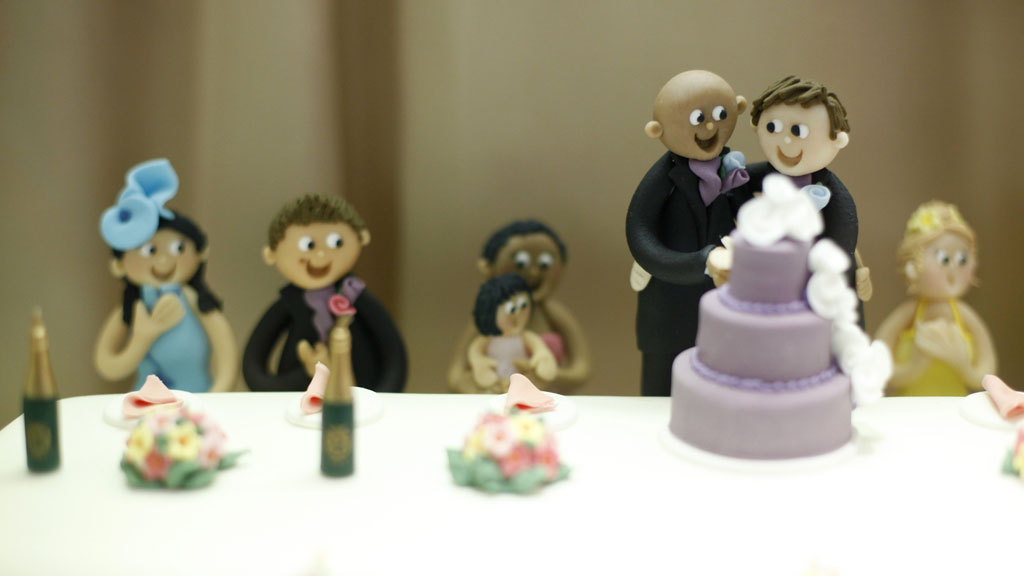Gay marriage: the key questions
This week marks the historic moment when gay couples will finally be able to marry in England and Wales. But how much will really change?

What will the ceremony be like?
The main difference will be that religious readings, music or symbols – currently banned during civil partnerships – will now be allowed.
It appears that some register offices have not actually revised their wedding ceremony scripts yet, despite the fact that it is already technically possible to have a same-sex marriage.
The current wording needs to be changed, as it states that “marriage according to the law of this country is the union of one man with one woman voluntarily entered into for life to the exclusion of all others”.
But the websites of a number of local authorities still say that their scripts have not been rewritten yet.
Hackney Council in London sent us a sample of an updated script, which contains only one change. Now the line that used to refer to “the union of one man with one woman” reads: “Marriage in this country means the union of two people, voluntarily entered into for life, to the exclusion of all others.”
The government has made it clear that the words “husband” and “wife” will continue to be used to refer to the men and women taking part in gay weddings.
What are the legal differences between a civil partnership and a same-sex marriage?
A civil partnership already offers gay couples the same legal treatment as straight married couples on inheritance, pensions, life assurance, immigration rights, child maintenance and other areas.
The legal status of a same-sex married couple is almost identical, but there are some small differences.
Arguably, it will be easier to dissolve a same-sex marriage than a civil partnership.
Unlike a partnership, a marriage can be annulled if one of the couple is suffering from a sexually transmitted disease at the time of the ceremony.
And while adultery can be cited as grounds for a divorce, ending a marriage, it is not something that can be relied on to end a civil partnership.
Will there be a flood of gay weddings?
A difficult question to answer. Stonewall says it is not aware of any polling or research predicting the likely demand for weddings.
When civil partnerships began in 2005, there was an initial surge of popularity, with more than 18,000 ceremonies in the first 12 months, and less than half that number in subsequent years.
We will just have to wait and see if that trend is repeated.
Are we ahead of the curve?
Some 15 countries – Argentina, Belgium, Brazil, Canada, Denmark, France, Iceland, the Netherlands, New Zealand, Norway, Portugal, Spain, South Africa, Sweden and Uruguay – and a number of US states have already legalised same-sex marriage.
In other parts of the world, the trend of increasing tolerance is in reverse. Last year, 66 per cent of Croatians voted to change the country’s constitution to define marriage as strictly heterosexual.
-
Latest news
-
As India goes to the polls in the world’s largest election – what do British-Indians think?6m

-
Tees Valley: Meet the candidates in one of the biggest contests coming up in May’s local elections4m

-
Keir Starmer says public sector reform will be a struggle7m

-
Nicola Sturgeon’s husband Peter Murrell charged with embezzlement of funds from SNP1m

-
Ukraine might finally get $60billion in American weapons and assistance to defend against Russia3m

-




